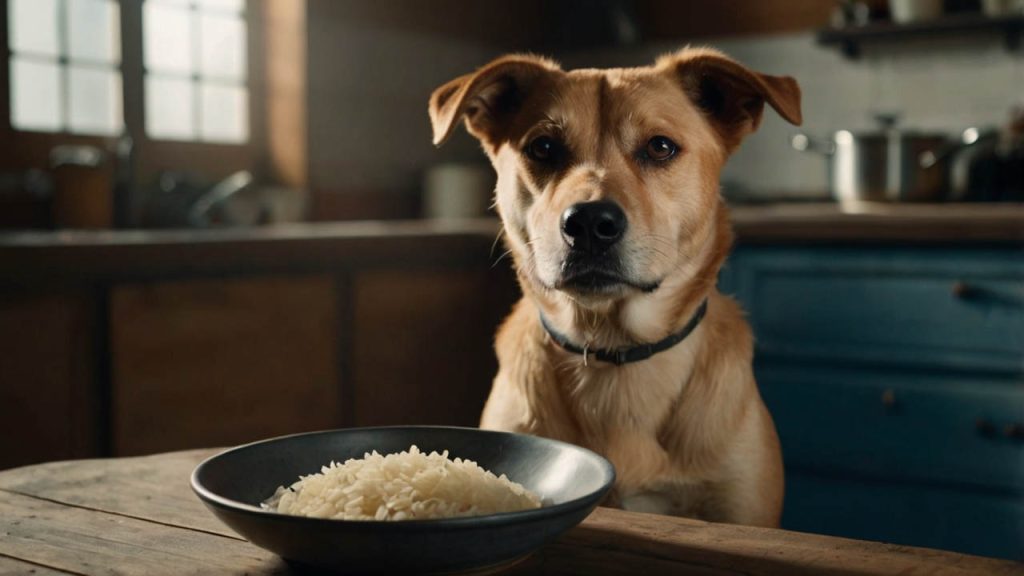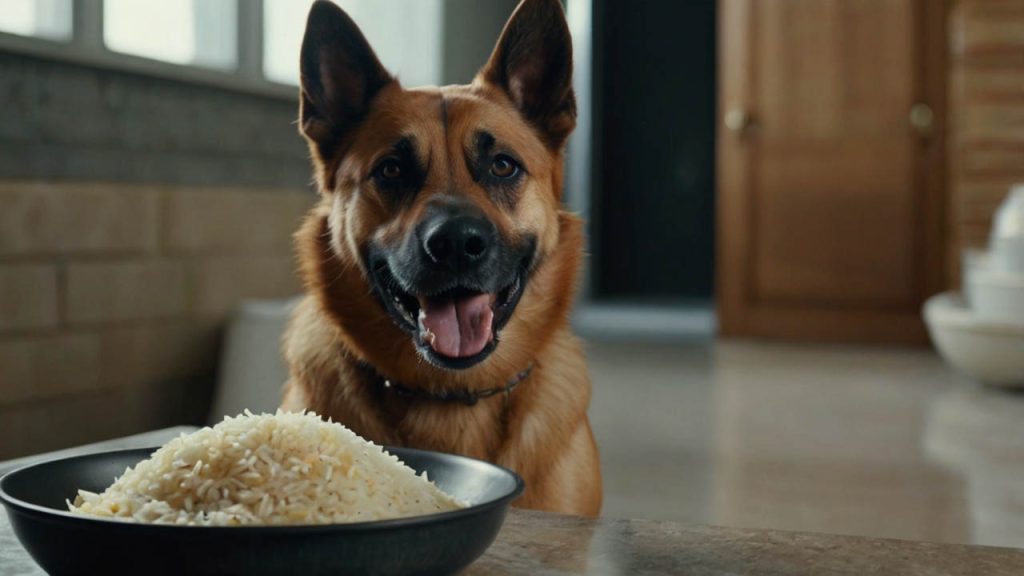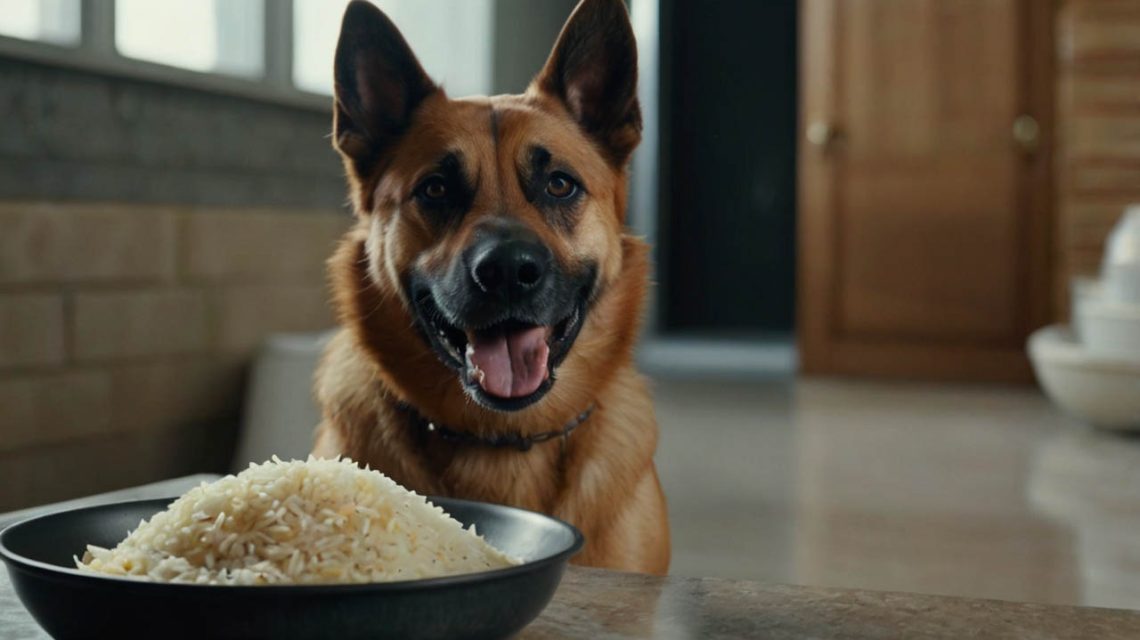The Ultimate Guide: Can Dogs Eat Cooked Rice?
The story is a familiar one for any dog owner dealing with a pet’s upset stomach. Your veterinarian gives you the classic recommendation for a bland diet: plain boiled chicken and a scoop of white rice. This common advice immediately brings up a broader question for many curious owners: Can dogs eat cooked rice as a regular part of their diet, or is it only for times of tummy trouble? The answer is a resounding “yes,” but the story is more detailed than that. The type of rice, the amount you serve, and how you prepare it all play a crucial role in whether this simple grain is a helpful addition or just an empty filler.
This comprehensive guide will tell the complete story of rice in your dog’s diet. We will begin by exploring why veterinarians so often recommend it for digestive upset. Subsequently, we will break down the important differences between white rice and brown rice and which is better for certain situations. Furthermore, we will provide clear, actionable guidelines on how to prepare and serve rice safely. Consequently, you will be empowered with the knowledge to confidently and correctly use this common household staple to support your dog’s health.
Why You Should Know if Dogs Can Eat Cooked Rice
Before we dive into the details, it’s vital to understand that while dogs are primarily carnivores, they are also opportunistic omnivores. Their systems are well-equipped to digest carbohydrates like rice, which is why it is a common ingredient in many commercial dog foods. However, not all rice is created equal, and it should never make up the bulk of your dog’s diet. Knowing if dogs can eat cooked rice safely is about understanding its role as a supplement or a temporary dietary aid, not as a primary food source.

The Role of Rice in a Bland Diet
The story of rice in the veterinary world is a story of soothing upset stomachs. When a dog has diarrhea or has been vomiting, their gastrointestinal tract is inflamed and irritated. A “bland diet” is recommended to give the system a chance to rest and recover.
Why White Rice is the Star of the Bland Diet
- Easy to Digest: White rice has had its outer bran and germ removed. This makes it very low in fiber and incredibly easy for a dog’s sensitive stomach to break down and absorb.
- Binds the Stool: The starchy nature of white rice can help to firm up loose stools, making it an excellent tool for managing diarrhea.
For these reasons, when your vet recommends rice for an upset stomach, they are almost always referring to plain, boiled white rice. This is the primary context for answering can dogs eat cooked rice.
White Rice vs. Brown Rice: Which is Better for Your Dog?
While white rice is the hero for an upset tummy, brown rice has its own set of benefits for a healthy dog. The story here is about nutrition.
Optimizing Your Choice with Brown Rice for Nutrition
Brown rice is a whole grain, meaning it still has the bran and germ. This is where the nutritional value lies.
- Higher in Fiber: The bran provides a great source of dietary fiber, which is important for regular bowel movements in a healthy dog.
- Richer in Nutrients: Brown rice contains more vitamins and minerals, such as B vitamins, magnesium, and selenium, than its white counterpart.
- Slower to Digest: The higher fiber content means brown rice is digested more slowly, which can help regulate blood sugar levels.
The Verdict on White vs. Brown
- For an Upset Stomach: Plain white rice is the best choice.
- For a Healthy Treat or Supplement: A small amount of brown rice is the more nutritious option.
This distinction is a key part of understanding can dogs eat cooked rice.

How to Safely Prepare and Serve Cooked Rice for Your Dog
The story of serving rice safely is a story of simplicity. The preparation is key.
- Always Cook it Thoroughly: You must always serve rice fully cooked. Uncooked rice is difficult to digest and can cause stomach upset.
- Keep it Absolutely Plain: This is the most important rule. You must cook the rice in plain water. Do not add any salt, butter, oil, onions, garlic, or any other seasonings. Many common seasonings are toxic to dogs.
- Let it Cool: Serve the rice at room temperature to avoid burning your dog’s mouth.
- Serve in Moderation: Rice is a carbohydrate and is high in calories. It should be given as a small part of a balanced meal, not as the entire meal itself. Remember the 10% treat rule: all supplements and treats should make up no more than 10% of your dog’s daily caloric intake.
Can All Dogs Eat Cooked Rice?
While most dogs can tolerate rice well, there are a few exceptions to the story.
- Dogs with Diabetes: Rice is a carbohydrate that can cause a spike in blood sugar. If your dog is diabetic, you should consult with your veterinarian before adding rice to their diet.
- Dogs with Grain Allergies: While not as common as protein allergies, some dogs do have sensitivities or allergies to grains. If you notice your dog becoming itchy or having an upset stomach after eating rice, they may have a sensitivity.
The American Kennel Club (AKC) provides an excellent, vet-reviewed overview of this topic.
The Final Verdict on Cooked Rice for Your Dog
So, let’s return to our original question: Can dogs eat cooked rice? The answer is a clear and confident “yes.” It is a safe, affordable, and easily digestible carbohydrate that can be a fantastic tool for managing digestive upset (in the form of white rice) or a nutritious supplement to a healthy diet (in the form of brown rice). The key to the story is proper preparation—always plain, always cooked—and moderation. By following these simple guidelines, you can safely incorporate this common pantry staple into your dog’s life.
Have you ever used a bland diet to help your dog with an upset stomach? Share your experience in the comments below! For more on safe human foods, be sure to read our guide on [The Ultimate List of Human Foods Your Dog Can and Can’t Eat].


